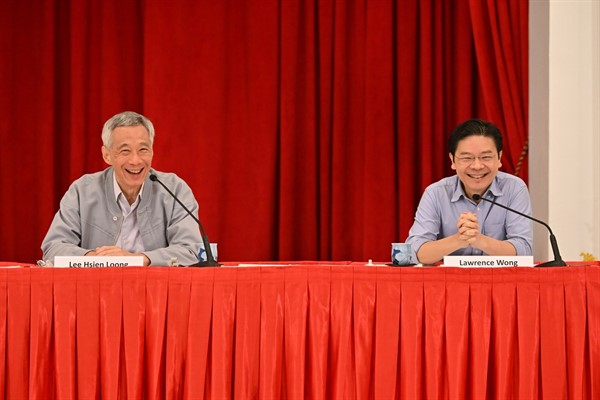When Singaporean Prime Minister Lee Hsien Loong named Finance Minister Lawrence Wong—his chosen successor—deputy prime minister as part of a Cabinet reshuffle on June 6, he asked Singaporeans to give their “full support to this important transition.” His request spotlighted a significant inflection point for Singapore, with the country simultaneously confronting a series of domestic and global challenges while it manages a critical leadership transition that will shape its future.
Singapore is deservedly heralded for its success in turning itself from a tiny so-called third-world country after the country’s independence in 1965 into a first-world city state under the leadership of its founding prime minister, Lee Kuan Yew. It did so by balancing efforts across various realms, including achieving significant domestic economic growth, supporting a regional balance of power underpinned by the United States, and being an active player in regional and international institutions, be it the Association of Southeast Asian Nations or the United Nations. Yet today, under the leadership of Lee’s son, several of the key foundations of Singapore’s success are coming under stress globally, regionally and domestically.
Globally, the international system within which Singapore has thrived is under duress due to a confluence of global crises, including the COVID-19 pandemic, Russia’s invasion of Ukraine and anxieties around globalization. This mix of challenges is particularly concerning for a small country and export-oriented economy that has traditionally depended on international rules and external trade for its survival. In March, Foreign Minister Vivian Balakrishnan offered a particularly stark warning that Russia’s invasion had brought a “screeching full stop” to an age of peace after World War II and intensified the prospects for a “global bifurcation” of technology and supply chains. More recently in June, when Singapore hosted the Shangri-La Dialogue, Asia’s premier security summit, the potential fallout from global dynamics was a key thread during the deliberations—be it the implications of the Russia-Ukraine conflict for food security or the impact of major power competition on a future crisis in the Taiwan Strait.

